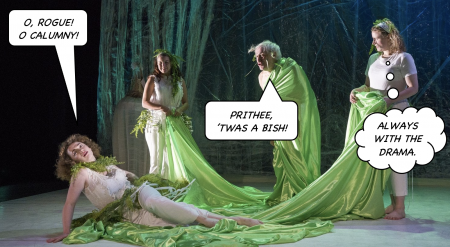Otto’s razor: Difference between revisions
Amwelladmin (talk | contribs) No edit summary |
Amwelladmin (talk | contribs) No edit summary |
||
| Line 5: | Line 5: | ||
A rule of thumb, attributed to 19th century Austrian plowright {{buchstein}}, that recommends when there are plausible alternative explanations for behaviour, one should choose the simplest-minded, preferring cloth-headedness or coincidence over the artful application of intelligence, inspiration, “malice, spite, or virtue”. | A rule of thumb, attributed to 19th century Austrian plowright {{buchstein}}, that recommends when there are plausible alternative explanations for behaviour, one should choose the simplest-minded, preferring cloth-headedness or coincidence over the artful application of intelligence, inspiration, “malice, spite, or virtue”. | ||
Until the contrary is proven, | Until the contrary is proven, treat both the pinnacles of success and the chasms of calumny as produce of accident and not design. Give the benefit of the doubt to deeds that present as wilful, and withhold it from strokes of ostensible genius until such time as you cannot realistically believe otherwise. | ||
{{dsh}} was a light-hearted comic farce, but (until the dengue fever got him) [[Büchstein]] took | {{dsh}} was a light-hearted comic farce, but (until the dengue fever got him) [[Büchstein]] took the aphorism seriously — some credit it to Goethe, or Aristotle — and would gleefully point out to disbelieving dinner guests apparent monuments to human triumph and stains of monstrous wickedness that in fact came about by more or less fortunate adjacency, and not intelligent design. By the time his “razor” caught on, [[Büchstein]] was deep in a Papaya-juice inflected hallucinations from which he did not recover.<ref>A poultice made from a preparation of papaya and coconut was a popular treatment for Dengue fever at the time.</ref> | ||
This is just as well: assuming the pithiness of Büchstein’s text to just such an accidental epiphany, Alfred N Hanlon nicked it, rebadging (and, frankly, improving) it to read “do not attribute to malice things that can just as well be explained by stupidity” and that is how it has remained, as “[[Hanlon’s razor]]”, to this day.<ref>None of this is true. Not a word.</ref> | |||
{{Sa}} | {{Sa}} | ||
*[[Occam’s razor]] | *[[Occam’s razor]] | ||
*{{buchstein}} | *{{buchstein}} | ||
{{ref}} | |||
Revision as of 20:17, 23 March 2022
|
Office anthropology™

|
Herculio: ’Tis neither malice, spite, nor virtue
Whose ledger swells, or plucks, the seedy fruits of progress —
But mainly accident.
Lest thee with surety know aught else —
Withhold thy assignations.
Triago: Pish upon thee, Nuncle. Pish!
Dost thou mean to say
Things peel this way
Through doughty misadventure?
Herculio: Peradventure —
Triago: Pish abeam!
Has thou no more to say than that?
Wouldst thou on this shaky surmise
Withhold rebuke?
Herculio: Perchance, per case, mayhap dear Triago
’Twas but a fluke?
Triago: O! This nuisant planet weighs upon my soul!
Herculio: If ’tis this and nought beside
That flies you to a vernal rage
Our fickle globe in its manifold confound’ry
Lies prettily indeed
For thy alignment.
A rule of thumb, attributed to 19th century Austrian plowright Büchstein, that recommends when there are plausible alternative explanations for behaviour, one should choose the simplest-minded, preferring cloth-headedness or coincidence over the artful application of intelligence, inspiration, “malice, spite, or virtue”.
Until the contrary is proven, treat both the pinnacles of success and the chasms of calumny as produce of accident and not design. Give the benefit of the doubt to deeds that present as wilful, and withhold it from strokes of ostensible genius until such time as you cannot realistically believe otherwise.
Die Schweizer Heulsuse was a light-hearted comic farce, but (until the dengue fever got him) Büchstein took the aphorism seriously — some credit it to Goethe, or Aristotle — and would gleefully point out to disbelieving dinner guests apparent monuments to human triumph and stains of monstrous wickedness that in fact came about by more or less fortunate adjacency, and not intelligent design. By the time his “razor” caught on, Büchstein was deep in a Papaya-juice inflected hallucinations from which he did not recover.[1]
This is just as well: assuming the pithiness of Büchstein’s text to just such an accidental epiphany, Alfred N Hanlon nicked it, rebadging (and, frankly, improving) it to read “do not attribute to malice things that can just as well be explained by stupidity” and that is how it has remained, as “Hanlon’s razor”, to this day.[2]